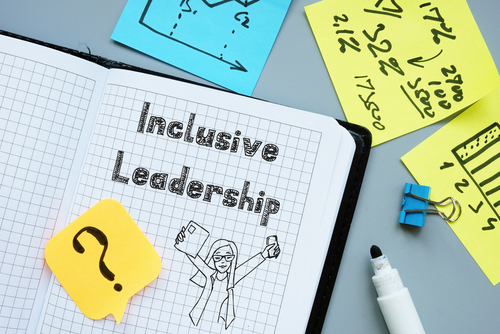“How we show up with others is really a reflection of how we view ourselves.”
My grandmother used to offer this piece of wisdom, and as we think about our diversity advocacy, it is worth remembering that our equity and belonging work is not about saving others as much as it is about growing and evolving ourselves. As we look to support our peers and colleagues who are marginalized based on their identities (i.e., age, race/ethnicity, gender, gender identity, religion, citizenship, sexual orientation, disability, etc.), the benefits for the inclusive leader are noteworthy.
And…the journey can spawn unheralded transformation.
Self-Awareness
Whenever we seek to understand others, it provides an opportunity for us to examine our own biases based on our family of origin or place of origin. It gives us space to review our assumptions and assess where we are in our learning journey.
Once we become aware of our starting point or baseline, we can then structure and design our learning in a way that helps us address our unique perspective, background, and history. Equity work requires each of us to take personal inventory and begin the task of examining our beliefs, assumptions, and attitudes.
Despite the discomfort this may generate, this process of self-discovery is necessary for self-growth.
Empathy
Often one of the most misunderstood practices in interpersonal engagement, empathy is the awareness and practice of witnessing someone else’s truth. It requires us to sit in someone else’s world and be present with their feelings, thoughts, and sensations.
In a multicultural society, empathy can never be over-utilized.
When we focus on hearing someone’s perspective without trying to problem-solve or mastermind a solution, we can develop greater global awareness and experience greater human connectivity. We can refine our level of compassion and extend the necessary grace to those whose stories have been historically neglected.
Advocacy
Although self-awareness and empathy are the foundational principles to being an ally to marginalized communities, the culmination of those experiences should be action and advocacy. If we truly understand the worldview of marginalized communities, then we have an obligation to relieve those communities of the barriers, biases, and prejudices they face, whether those indignities are systemic or of our own doing.
Taking concrete action to support our colleagues is a primer for design thinking, acting strategically, mobilizing one’s resources, and executing on key deliverables. It can also help leaders develop shrewd and savvy ways to leverage their influential power, use their voices, and commit to greater social responsibility.
Cross Cultural Communication
Additionally, understanding marginalized communities also means recognizing how to work and navigate multicultural environments. It means learning how to communicate across cultures and decode social cues, develop one’s linguistic capabilities, familiarize oneself with different cultural norms and behaviors, and manage interpersonal complexity.
In other words, supporting marginalized communities means improving one’s cross-cultural communication skills to engage in deeper meaning-making, to support greater healing and dialogue, to improve coalition-building, and to communicate more effectively across cultural differences.
Adaptiveness
Finally, supporting marginalized communities means learning how to be adaptive in an ever-changing, complex world. We are now in an era where the solutions to our most vexing issues are not obvious or straightforward.
As a result, we have to nurture our ability to be flexible and fluid when we encounter unprecedented challenges or unfamiliar circumstances. Marginalized communities are not a monolith and the emergence of new intersectional voices in the world signifies that the issues we will face in an increasingly interdependent and diverse world, will only multiply over time.
At times, the rules of engagement will be ambiguous. At other times, the solutions will be nebulous at best.
We must remember that in connecting with marginalized communities that we are meeting with people first and identities second.
We are each our own system and each of us is our own world, and our adaptiveness can serve us well if we recognize that minoritized people (no more than any other human being) are complex, rich, and layered. As we become more accustomed to understanding marginalized communities, we will need to enhance our ability to be agile in a diverse and idiosyncratic world which needs us to be comfortable with the uncomfortable and nimble when others are maladaptive.
Conclusion
We can’t change the world without changing ourselves.
If we are cognizant of the opportunities for personal transformation and growth when serving marginalized communities, we will not only be better agents for justice and equity, we will also become the very change agents who can eradicate societal marginalization at the macro level. Being an ally for members of historically oppressed groups can help us develop greater self-awareness, show greater empathy, support greater advocacy, sponsor more adept cross-cultural communication, and exhibit greater adaptiveness.
In turn, the exercise of supporting equity will lead to greater mutuality, transformational leadership, harmony and freedom in whatever place of employment we call our home.
Dr. Joel A. Davis Brown is an organizational development consultant, professor, and author of the recently published bestselling book: The Souls of Queer Folk: How Understanding LGBTQ+ Can Transform Your Leadership Practice. As a soulful nerd, he is already working on books #2 and #3, which will focus on healing and story listening respectively. He is based in San Francisco and New York City. More at www.pneumos.com.

